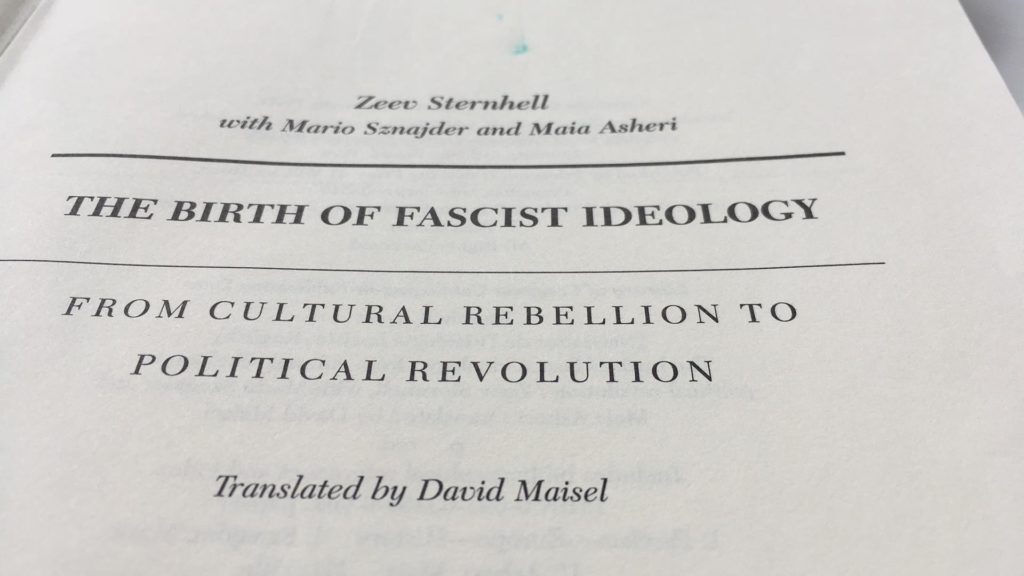
Zeev Sternhell was an Israeli scholar known for his study of fascism, The Birth of Fascist Ideology (1989).
I headed for the university library and found that book.
I read the introduction and the rest of the book ‘by index’.
Doing that, I stumbled upon the grand sweeping statements by T. E. Hulme on his hatred for the Renaissance, Rousseau and Romanticism:
“That is why he [Hulme] was so hostile to romanticism: underlying romanticism and the French Revolution, he believed, was the Rousseauist concept of the individual. Rousseau, he wrote, taught the people of the eighteenth century “that man was by nature good,” that he was “an infinite reservoir of possibilities,” and that the source of all evils was “bad laws.” According to Rousseau, the destruction of the existing oppressive order would open up infinite possibilities of progress. Classicism, wrote Hulme, was defined by an opposite conception, namely, that “man is an extraordinarily fixed and limited animal whose nature is absolutely constant. It is only by tradition and organization that anything decent can be got out of him.””
The citations are from T. E. Hulme’s Speculations (1936).
It is interesting to note that Sternhell locates the origins of fascism within the artistic realm:
“A desire to cleanse the world of the defilements of the eighteenth century and to introduce various forms of discipline such as classicism and nationalism, no less than a rejection of liberal and bourgeois “decadence,” united in a single tide of sentiment some of the most important literary and artistic avant-gardes in Europe.”
